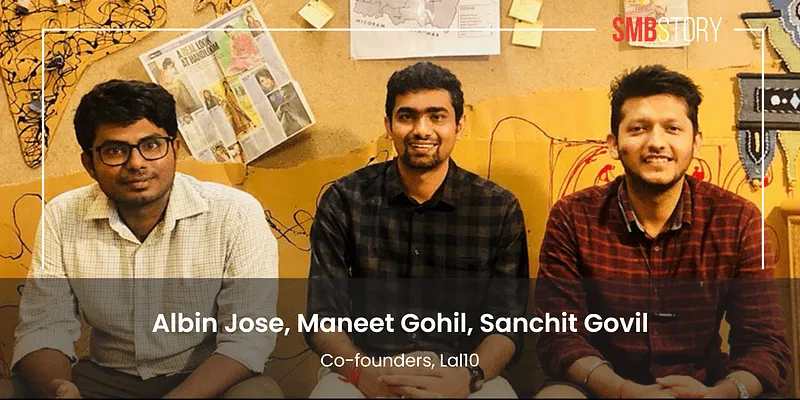5 platforms helping India’s MSME sector go digital
Small business owners as well as industry stakeholders have realised that oiling the wheels of the MSME sector will further help in propelling the entire economy forward. Here are five platforms that are making it happen.
According to Cisco India SMB Digital Maturity Study 2020, digital adoption will enable SMEs to add around $158 billion to $216 billion to India’s GDP by 2024.
The micro, small and medium enterprises (MSMEs) in the country form the backbone of the Indian economy. According to a report by the India Brand Equity Foundation (IBEF), India is home to about 6.3 crore MSMEs. It employs the largest number of people, second only to agriculture.
In the recent past, especially since the pandemic outbreak, small business owners, as well as industry stakeholders, have realised that oiling the wheels of the MSME sector will further help in propelling the entire economy forward.
This week SMBStory explores five companies that are digitising India’s MSME sector.
Imprezz

is the Indian vertical of Germany-based data service company Buhl Group, which was founded in 1995 by Waldemar Buhl. Bengaluru-based Imprezz was launched in 2019, and provides various services such as generating invoices, accounting solutions, payments, and more.
SMBStory spoke to Amit Mundra, CEO and Country Manager of Buhl Data Service, on how Imprezz differentiates itself, the workings, and its plans in the coming months.
According to Amit, the core of Imprezz is to become a “backbone for MSMEs” and build a platform that caters to all their needs. The billing and accounting software of Imprezz is available for free. However, it has several add-on features, which costs between Rs 999 and Rs 1,499.
Recordent India

Micro, small and medium enterprises (MSMEs) are undoubtedly crucial to the Indian economy. However, access to credit and credit financing are some of the major challenges faced by this sector.
According to rough estimates, 27-29 percent of small and medium businesses (SMBs) operate without any access to formal credit, which leads to a cycle of credit demand. SMEs, being traditional in nature, find it difficult to deal with these challenges.
Enter Recordent, which helps small and medium enterprises manage and monitor their credit risks using data. The Hyderabad-based company was incorporated in 2018 but only started operations in 2021 amid the pandemic.
It offers four main products – cRediDue, cRediEye, Legal Notice, and E-arbitration. From helping MSMEs generate invoice reconciliation notifications and create customer credit history to sending legal notices, offers a host of services. It claims to have generated over 71,000 invoices, and Rs 2.5 crore worth of business credit reports till date.
Sowtex

Delhi-based Sowtex Network, a B2B sourcing platform for textile buyers and sellers, was founded by Sonil Jain.
offers 46 categories of items on its platform, including fabrics, motifs, laces, badges, apparel machines, testing equipment, neck patches, buttons, threads, interlinings, yarns, zippers, and much more. It also helps facilitate international transactions, including in countries like Bangladesh, Sri Lanka, Indonesia, and Korea.
The company claims to have facilitated business worth Rs 20 crore since its inception in 2017. The intention behind starting Sowtex was to bring the industry closer and eliminate the role of middlemen, which it has largely accomplished. The seller gets a good price for his produce whereas the buyer can get a price which is 5 to 25 percent cheaper, Sonil claims.
From 5,000 users before the pandemic, Sowtex today has a reach of more than 14,500 active users (in total since its inception), which it plans to scale up to 1 lakh active users in the next 12-18 months.
Yarn Bazaar

Mumbai-based is another company that is digitising the yarn industry. Since its inception, the company claims to have sold yarn worth Rs 280 crore. Recently, the company also raised Rs 1 crore from four sharks on Shark Tank India which premiered on Sony TV in its first season.
The business model functions through a website, and Android and iOS mobile applications. It is a holistic one-stop platform for discovering good quality yarn, getting the best price, and vendors.
Both buyers and sellers have to create their profiles on the platform. The buyer can post requirements, compare prices from a list of sellers, and place orders accordingly. The buyer can also request for a sample of the yarn and order for a test report to keep track of the quality of the yarn. When both the parties are satisfied, the transaction happens through the platform.
The Yarn Bazaar charges a convenience fee for the transactions, which it did not reveal. Today, over 8,000 users have registered on the platform.
Recently, the company also launched a content platform called Texpreneurs through which it interacts with textile entrepreneurs and industry stakeholders, and solves the bottlenecks they face.
Lal10

Noida-based was founded in 2017 by Maneet Gohil, Sanchit Govil, and Albin Jose. It is an online wholesale marketplace for rural micro, small and medium enterprises (MSMEs) in India. From apparel, handbags, to lampshades, it has a total of 30,000 stock-keeping units (SKUs).
The name Lal10, pronounced lalten (meaning lantern), is derived from the company’s mission to “bring light to the artisans”.
In March 2020, Lal10 raised a seed round from Utah-based Sorenson Impact and a few angel investors. The brand has connected weavers and artisans with labels, including Zara, Anita Dongre, Toast, Wills Lifestyle, FabIndia, Four Seasons, and Taneira.
Today, the platform is working with 1,500 artisans across the country and helping them connect with retailers in India and 19 other countries.
In a conversation with SMBStory, Maneet talks about the company’s effort in digitising and organising the sector, and how COVID-19 brought changes within the organisation.
Edited by Anju Narayanan











